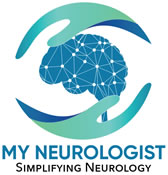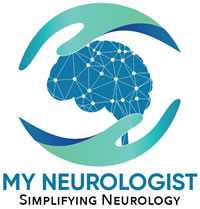The term delusion means a strong false belief, which is not based upon reality and is accepted as truth by the patient despite evidence to the contrary. This is not about differences based upon culture, politics, religion, or any ulterior motive. In medical terminology, delusions are part of an underlying behavioral disorder and are commonly associated with paranoia.
Are there different types of delusions?
Delusions are divided in different types to help make the right diagnosis. Following are some examples:
. Jealousy: “My partner is having an affair or is flirting.”
. Bizarre: Believing in something that is just not possible, “Aliens have taken over the world.”
. Erotomanic: “She (or he) is in love with me,” usually of higher social status.
. Grandiose: “I am Jesus Christ.” Belief of inflated self-worth or power.
. Persecutory: “My neighbor (or a house-worker) is steeling my money (or something else).”
. Somatic: About bodily functions, like belief in false parasite infestation. “I am fat (while underweight),” the dysmorphic body syndrome.
. Thought broadcasting: “My thoughts are being read,” by someone.
. Thought insertion: “Someone is inserting thoughts into mine.”
. Miscellaneous: “Vaccines make people sterile.” “An imposter is living in my house,” instead of my wife, The Capgras syndrome.
What is the significance of delusions or delusional thoughts?
Delusion is an abnormal thinking process and suggests an underlying psychological or psychiatric condition. The root cause of this behavior is likely a malfunction of brain’s electrochemical circuitry for thought processing. The exact location and nature of dysfunction is not well defined. Due to genetic and environmental factors, some people are more at risk of developing delusions than others. There may be familial tendency for mental disorder. Following types of conditions are associated with delusional thinking:
. Delusional disorder
. Psychotic disorders
. Personality disorders
. Dementias
. Brain injury from trauma, stroke, infection, auto-immune disorders, PTSD, etc.
. Drug abuse
What is the effect of delusions, or why it needs treatment?
Delusional thinking is damaging and disruptive for the patient’s personal, family and social wellbeing. It may strain relationships, create social or political disharmony, or lead to erroneous or destructive decisions. Despite that, many people with delusional disorder appear to function relatively “normally” while rejecting the notion that they have a problem. If confronted, they fault other people, usually the one directly affected by their delusional thinking and behavior. It is not easy to manage this type of situation and requires patience and professional relationship building before any intervention.
How is delusional disorder treated?
The first difficulty to treat this condition is to convince the patient about it. As stated above, many patients do not have proper insights resulting in lack of cooperation or compliance with treatment. Psychotherapy (talk therapy) or cognitive behavioral therapy can be tried. As far as medicines are concerned, anti-psychotic type of medicines is used for treatment. There are many to choose from and some are relatively safer than others. In general, newer antipsychotics have lesser side-effects. Smallest effective dose is used.
What age group is affected by delusional disorders?
Delusions usually are part of psychotic disorder. Following is relation of age with psychosis or psychotic disorders:
a. Children and early teens: Psychotic disorders are rare in this age group, but it can happen. It can start in children as young as 5.
b. Teenagers and early adulthood: This is the time when most psychotic disorders are diagnosed, though going back in patient’s history one can easily find indications for a behavioral illness. For men, the peak age is late teens to 20s, and for women, it is late 20s to 30s.
c. 40s-60s age group: Not as many patients are diagnosed with psychosis in this age group than before and after. Usual causes in this age group are drug use, head injury, PTSD, brain infections, stroke, etc.
d. Late 60s and older: This is the time when people are at risk to develop multiple type of dementias. Many dementias have psychotic symptoms including delusions and paranoia, e. g., Lewy Body Dementia.
Do I have to take a medicine for delusional thinking?
The decision about treatment depends upon the underlying diagnosis, the nature of delusions, and their impact on the patient or the family. Usually, it is more disruptive in younger patients and a medicine may be needed. The situation is somewhat different in elderly or patients with dementia. In patients with dementia the first step is to educate the family. If possible, and if patient can be kept safe, delusions and paranoias can be ignored, and a medicine treatment can be avoided. On the other hand, many patients have significant symptoms to disrupt their own and family’s life and sometimes also causing risky situations. Anti-psychotics, which are used to treat delusional or psychotic symptoms, are risky to use in elderly; they can even be fatal. On the other hand, if used carefully and intelligently, this type of treatment can provide significant help to improve patient and the caretaker’s situation or prevent relocation of patient to an institution.
What should the patient or a family member do if delusional thinking is suspected?
Consult with your primary care provider. A consultation with a psychiatrist or a neurologist may be needed for proper diagnosis and management.
Where can I get more information about depression?
American Psychiatric Association
National Institute of Mental Health


Leave a Reply
Your email is safe with us.
You must be logged in to post a comment.